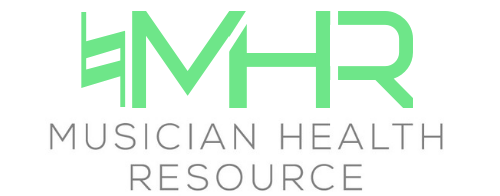
New economic relief legislation, The Enhanced Employment Benefits in the Coronavirus Aid, Relief, and Economic Security (CARES) Act, just passed in the Senate and the House and has been signed into law by the President.
Here's what it means for you!
The CARES Act opens up Unemployment Insurance (UI) benefits for gig-economy, freelance and self-employed Schedule C workers for the first time. It also allows for an extension to the previously limited pay-out time as well as an additional $600 a week for those who are eligible and in need of greater financial assistance.
This Act also sends a check for $1,200 to all Americans who filed individually on their taxes and made less that $75,000. If you filed jointly, then you must have made under $150,000 combined. The check amounts will taper out up and end at $99,000 in income and includes $500 per child dependant in your household. I'll cover all the details of taxes in the COVID-19 pandemic in a post next week.
It also has a bunch of benefits to small businesses and I'll be covering that in a separate blog post for those of you who run music studios or wedding music companies next week as well.
Here's an approximation of what you as a musician, employed or unemployed need to know about this new legislation. EACH STATE IS DIFFERENT!
If you already know that your previous W2 income qualifies you for unemployment, scroll down and click on your state below to be taken to your state's department of unemployment. Also, fair warning, once in my life I qualified and started filing for unemployment and it was a major headache even before the entire country was also doing it... You will need ALL of your previous W2 statements and your most recent tax filing plus your social security number.
Wait times are at an all-time high with websites crashing due to the amount of requests. That's because over three million dollars has already been requested in government financial aid. The previous record of requested government unemployment financial aid was $695,000, just to put things in perspective.
For musicians who are "employed."
You are typically a musician who has been employed regularly in a symphony, on a tour, on a TV show, or a significant portion of your income comes from W2's on union gigs. You may also be a music teacher either in classroom, after school programs or a music studio that hires you on as an employee. To qualify in this way, you cannot be currently receiving substantial compensation for continuing these duties by teaching, recording or performing remotely.
Each state has their own UI cap that they're willing to distribute weekly based roughly on what they think half of your weekly take-home pay might be. I currently live in California, so let's use that as our example.
In California the UI cap is $450 a week. However, the amount you receive is based on the income you were making prior to becoming unemployed. If you were making less that $1,000 a week before your work was affected by COVID-19, your awarded amount will likely be less than the $450. Some good news, under the new legislation eligible workers will receive the additional $600 a week in order to fill in income gaps.
Unemployment offices currently understand that most work options are off the table and all revenue sources have been cut off during the COVID-19 pandemic. But, they may still ask you to report any new job or wages currently being collected. If you're recording remotely or teaching remotely, beware that any discovered income could have repercussions down the line in your taxes or legal standings.
In summary, if you are usually an employed musician with a majority of W2 income or a music teacher with a majority W2 income that you are not currently collecting through remote activities, you are eligible to receive up to your states unemployment aid cap each week, depending on your prior average weekly take-home pay. With the new legislation, you are eligible to receive the additional $600 per week.
If you have both W2 and 1099 income the W2 income will allow you to collect up to the full amount of your state's weekly cap plus $600. If you are filing as a freelancer, you will only be eligible for half of your state's weekly cap plus the $600. If $225 a week in the state of California makes that much of a difference to you, file this way.
Musicians who are "unemployed."
This means you are a freelancer, self-employed or gig-economy worker. You typically file a Schedule C and/or a plethora of 1099's each year at tax time. Under this new legislation you are eligible for UI benefits!
The details of this will continue to vary state by state just like all UI benefits. Currently, within this new expansion you will qualify for up to half (50%) of your state's current weekly maximum. As an example, in my home state of California, I would be eligible for half of the state's $450 weekly UI cap for a total of $225 each week. And, good news, with the CARES Act, musicians in this category will also receive the additional $600 a week as well.
Things for everyone to note!
- The $600 additional revenue is only be available until July 31, 2020, they are giving us 4 months of it and that is it.
- The federal government extended UI benefits are intended to last for thirteen weeks beyond the states current capabilities.
- This means the new legislation restricts the maximum duration of UI benefits to 39 weeks.
- UI benefits are still taxable.
- If you're a gig-economy worker, freelancer or Schedule C worker who happens to have made ridiculous amounts of money up until this time, you might not be eligible for anything.
- The expansion of UI to gig-economy and freelance workers lasts only until December 2020, which means you have all of this year, but likely only this year, to benefit from UI.
- Benefits are being extended beyond the typical pay period so if you are currently already on UI, you may reapply.
- It typically takes two to three weeks after filing a claim to receive your first benefits. This varies by state. Many labor departments currently have an overload of requests so be patient.
- Remember, just because you apply doesn't mean you'll receive benefits.
- UI benefits are limited to those who are legally allowed to work in the United States.
- If your need is not urgent, consider waiting until some of the urgent cases have filed. Most states will still award you the money from the time you ceased to be employed.
- If you don't need unemployment or you don't need it for the full time, or you don't need it yet, maybe don't get it. Remember money comes from somewhere and, if enacted, this legislation alone will cost between $187.6 billion and $319.9 billion. It is just as difficult to estimate the economic results of these numbers as it is to estimate the economic results of this global crisis.
Links to State Unemployment Applications
Have hope!







